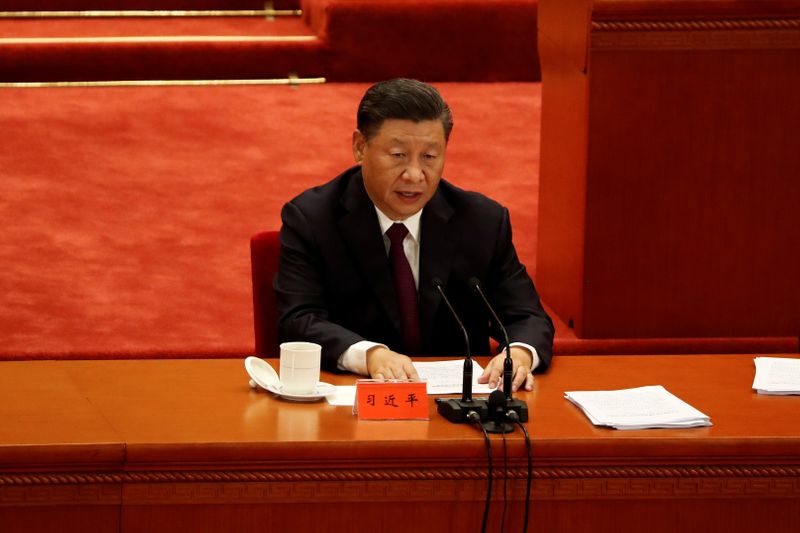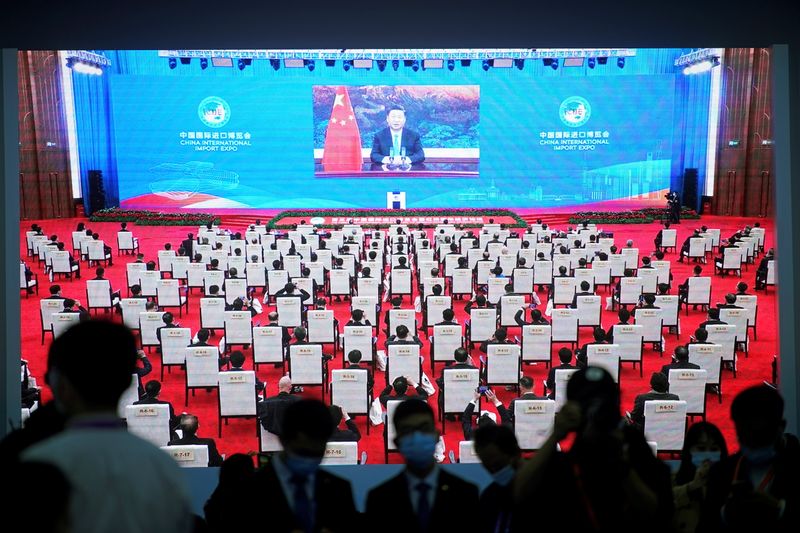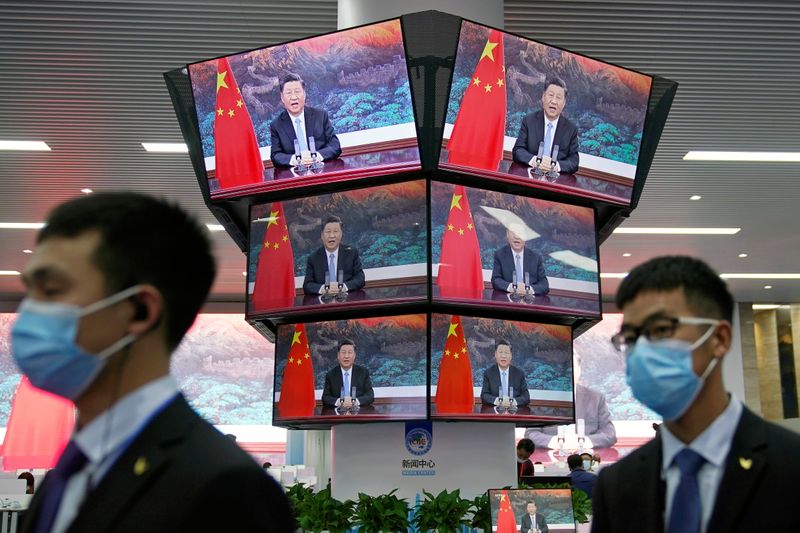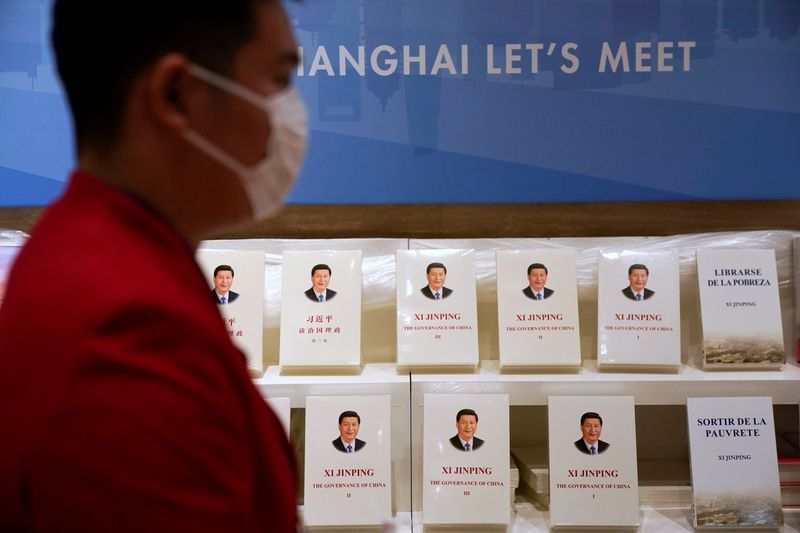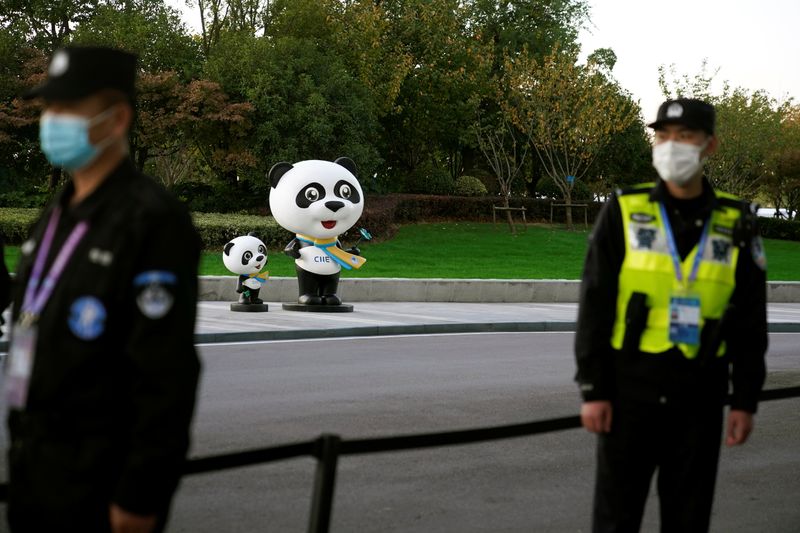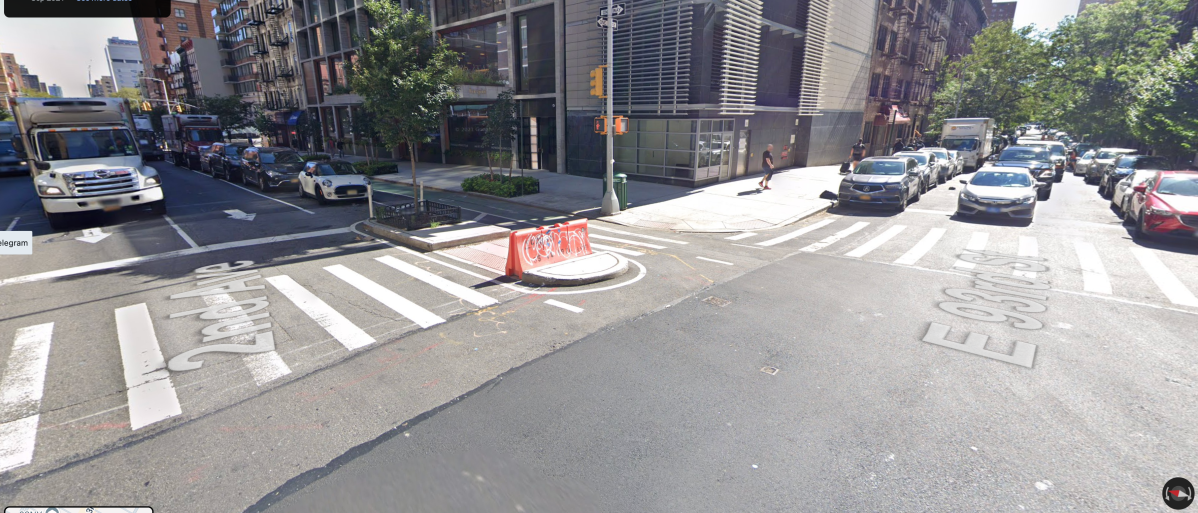SHANGHAI (Reuters) – China will import over $22 trillion worth of goods over the next decade, and the country is accelerating its opening up in spite of the global coronavirus pandemic, Chinese President Xi Jinping said on Wednesday.
Speaking via video message at the opening of the Nov. 5-10 China International Import Expo, or CIIE, an annual import show in Shanghai, he said the world should not let unilateralism and protectionism undermine the international order.
“We should take a constructive stance to reform the global economic governance system and promote an open world economy,” he said via video message.
“With a population of 1.4 billion and a middle-income group exceeding 400 million, China is the world’s largest market with the greatest potential. China is expected to import an accumulated over $22 trillion worth of goods in the next 10 years.”
China is set to be the only major economy to grow this year after largely bringing the epidemic under control, following its emergence in the central city of Wuhan last year.
It opted to push ahead with its annual import fair this year, a rare in-person trade event held during the pandemic, albeit with stringent capacity limits and health restrictions. CIIE was first held in 2018 when a trade war between China and the United States was heating up.
Analysts said the fair was a signal that the country is open for business, though few, if any, foreign business and political leaders are expected to attend in person, due in part to COVID-19.
Serbian President Aleksandar Vucic and Tedros Adhanom Ghebreyesus, director-general of the World Health Organization, were among other speakers who delivered video messages at the opening ceremony.
Though the exhibition is focused on buying foreign goods, critics say it does little to address structural issues with China’s export-dominant trade practices, such as weak intellectual property protection and the lack of a level playing field for foreign businesses in China.
Xi said China would reduce its catalog of restricted goods and technology imports, treat all companies registered in China equally and sign more high quality trade agreements with other countries.
His $22 trillion pledge compares with a target he announced in 2018, when he said he expects China to import $30 trillion worth of goods and $10 trillion worth of services in the next 15 years.
He did not give a goal at last year’s fair, which took place before the emergence of the coronavirus, but assistant commerce minister Ren Hongbin said that year that China was confident of fulfilling its 2018 CIIE pledges.
China’s 2019 imports of goods fell 2.8% to $2.08 trillion as economic growth slowed to near 30-year lows. That compares with a 15.8% surge in imports in 2018 to $2.14 trillion.
Xi did not in his speech directly address China’s increasingly difficult relationship with the United States, especially with President Donald Trump, who has launched a raft of sanctions against Beijing, nor the country’s presidential elections.
The U.S. presidential election, in which Trump is running against Democratic rival Joe Biden, hung in the balance on Wednesday and has so far proved far closer than polls had predicted.
However, Xi said that countries should not “throw punches” at each other.
(Reporting by Brenda Goh and Winni Zhou; editing by Andrew Heavens, Larry King)

